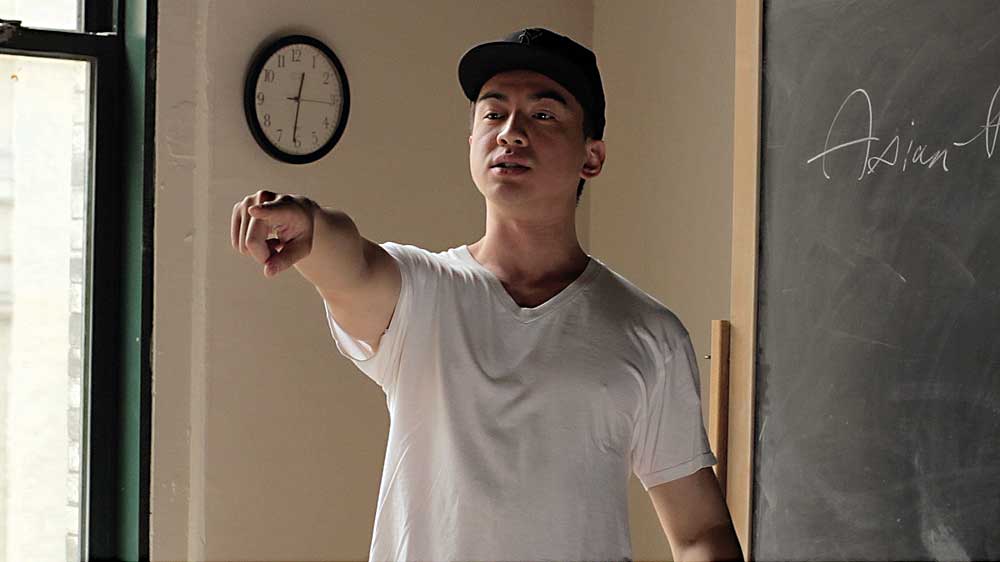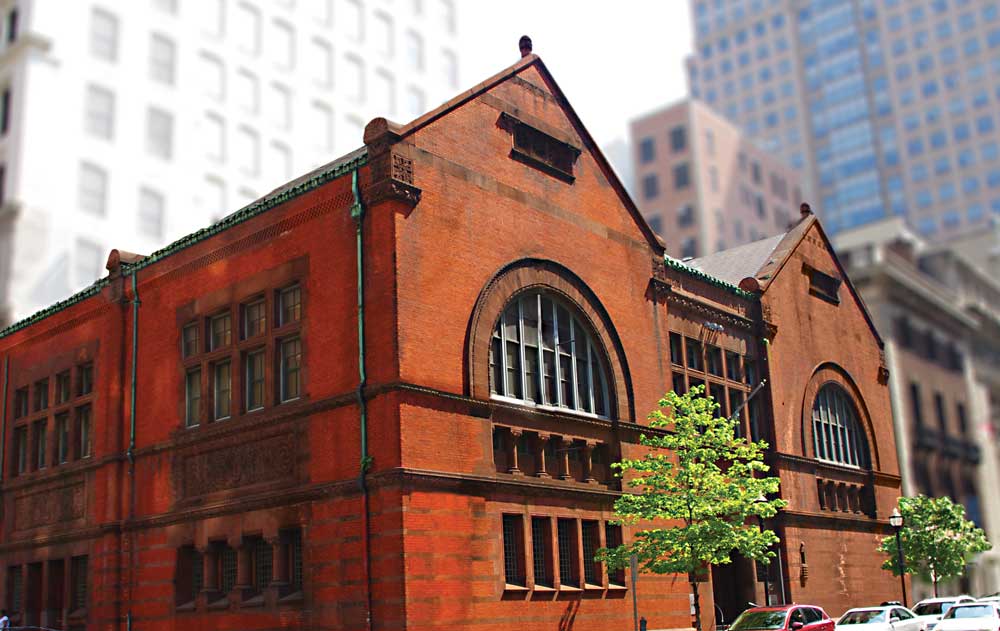ST. LOUIS: When Rick Dildine moved from Chicago to St. Louis to head up Shakespeare Festival St. Louis back in 2009, he noticed something odd. “I kept driving down dead-end streets,” he recalls. He soon learned that, in an effort to contain crime in the 1960s and ’70s, the city had barricaded more than 260 thoroughfares, which created “barriers akin to segregation,” Dildine says. “They created dead-end streets that look like bunkers.”
So Dildine went to his company’s board and asked: “What if we shut down a street in the name of building community, not crime control?” The result, in 2012, was the first Shakespeare in the Streets (SITS) performance, a community-focused adaptation of The Tempest that was presented on a closed-down street in the city’s largely Latino Cherokee Street neighborhood. Last year, a play based on The Winter’s Tale was presented in a historically segregated area called the Grove. And this year, the location is a separately incorporated St. Louis suburb, the affluent city of Clayton, and the Shakespeare play that forms the basis of playwright Nancy Bell’s adaptation is As You Like It, to be directed by Alec Wild.
Bell, who has written all the SITS adaptations, says that Shakespeare’s bucolic comedy seemed a good fit for a neighborhood that’s affluent and racially homogeneous but made it a point of pride to voluntarily desegregate its flagship Clayton High School. In Bell’s 75-minute version, the high school stands in for the French court and downtown St. Louis for the Forest of Arden; the famous wrestling match of the original is now an “academic quiz bowl.” Bell says the play’s language switches freely between contemporary and antique idioms. “I like the way audiences get tricked into hearing Shakespeare,” she says.
Bell is part of a creative team that spends a year in a given neighborhood doing story circles, creating relationships and gathering information, in a model similar to Cornerstone Theater Company. “This is not a side project—this is part of our season,” insists Dildine, who estimates this year’s budget for SITS to be $75,000 (out of an annual budget close to $1.6 million). Between 700 and 1,000 patrons attend each SITS performance, and though Dildine can’t prove the correlation, he notes that attendance at the festival’s May–June mainstage productions in Forest Park, which seats around 5,000, has increased by 30 percent, and noticeably diversified, since SITS began. “For us it’s not just about new audiences,” Dildine emphasizes, “but about the principle, a core value, which is accessibility. To solve problems it takes people, not concrete.” As You Like It runs Sept. 18–20, and it’s free of charge. Go to www.sfstl.com.

NATIONWIDE: In 2012, Center Stage of Baltimore, Md., celebrated its 50th anniversary by commissioning 50 playwrights to write a monologue around a central prompt, “What Is My America?” (AT, Dec. ’12).The theatre didn’t stage them, though: Instead, they hired indie auteur Hal Hartley (Henry Fool, Amateur)to make them into short films that could be accessed piecemeal online.
But Hartley says he always saw more potential than just a series of YouTube monologues. So he chose 21 of his favorites and cut them together into a feature-length, 78-minute film called My America, now available to stream on the online service Fandor (after a screening in July at New York City’s IFC Center).
“I do think they’re the freshest,” Hartley says of the segments culled for the film. “They’re the most general and, as a group, they present a portrait of the nation at this time that is, I would say, healthfully skeptical.”
The playwrights who made the feature-film cut include Lauren Yee, Kia Corthron, Rajiv Joseph, Neil LaBute and Marcus Gardley, read by performers including Kathleen Chalfant, Jefferson Mays and Alvin Epstein. The tableaux range from an African-American man ruminating on books in prison, to an Asian-American man presenting on the Hmong tribe, to a Caucasian woman looking back on her life and the various odd jobs she’s had.
When asked how he would classify My America, the film, Hartley shies away from easy labels. “I always say fiction and nonfiction rather than narratives and documentaries,” says Hartley, who puts My America in the former category. “It’s just 21 little stories. I hope it’ll appeal to people who like stories and like performers.” Add My America to your stream queue by visiting www.fandor.com/films/my_america.

BALTIMORE: Prep the housewarming gifts. This month, Chesapeake Shakespeare Company will be celebrating its first season in its new home. Following a $6-million capital campaign, the theatre was able to acquire a Victorian bank building-turned-nightclub in downtown Baltimore, at 7 South Calvert Street.
Founded by Ian Gallanar in 2002, CSC began as a summer theatre operating out of PFI Historic Park in Ellicott City, Md., in Howard County. When it came time to look for a second space with a roof, the theatre decided to expand in more ways than one. “We thought, ‘Instead of just doing bigger things where we are, why don’t we go into Baltimore and create programming specifically for a Baltimore audience?’” says Gallanar.
CSC is the newest company to make the move to downtown Baltimore. In January 2013, Everyman Theatre opened a 250-seat theatre a 10-minute walk from CSC’s new digs. CSC’s new building was purchased by a trustee of the theatre, and the company signed a 21-year-lease with rent at an eminently affordable $10 per month.
The theatre is modeled after the Globe Theatre in London, with a three-level thrust stage and bench seating for 250. It also allows for an increase in programming, turning the summer-only company into a year-round entity, which will double its lineup to eight shows. CSC will continue hosting shows in its Ellicott City outdoor space, and there’s educational programming for area youth in the works. “Every two months in the spring, we’ll perform matinees of Romeo and Juliet, so the teachers will know what to expect—it’ll be a ritual,” says Gallanar. The first show of CSC’s new year-round season is A Midsummer Night’s Dream, directed by Gallanar and running Sept 25–Oct. 12. Visit www.chesapeakeshakespeare.com.


